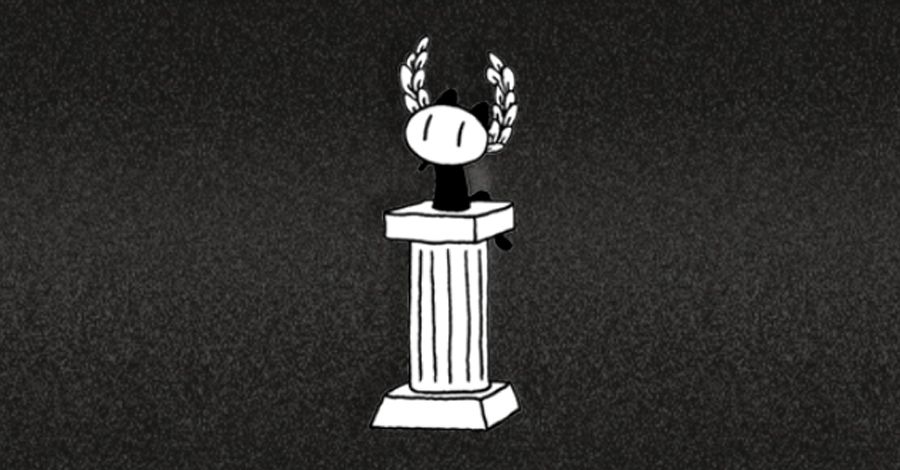Saying "We cannot rewrite the history of comics," organizers of the Angouleme International Comics Festival nonetheless announced today that they will add women creators to the longlist of nominees for this year's Grand Prix d'Angouleme. None of the creators already on the list will be removed.
The original list of 30 nominees for the festival's prestigious lifetime achievement award contained only men, sparking a call for a boycott by the French women creators' organization BD Egalite. As of today, 11 of the nominees, including Brian Michael Bendis, Chris Ware, Milo Manara, Daniel Clowes, Bill Sienkiewicz and Joann Sfar, had withdrawn their names from consideration for the prize.
A rough translation of the statement statement from Angouleme organizers can be found below:
"The Official Selection of the 2016 Angouleme Festival does not include a single woman this year? How can such an omission be possible?"
That, in summary, is the object o the discussions and polemics that have been developing since yesterday.
Except that… except that we should look at it more closely, or rather, higher and further away.
What are we talking about? About the list of creators nominated for the title of "Grand Prix of the Festival."
What is the "Grand Prix"? A prize that crowns a creator for all of his work and his contributions to the evolution of comics. In this sense, it resembles the inductions of rock bands into the Rock and Roll Hall of Fame or a César Award [the national film award of France].
The winners of the last three years embody the nature of this prize. They are Willem, Bill Watterson, and Katsuhiro Otomo. These artists created comics for many decades.
When we go back and look at the places of men and women during that time, in the field of comics creation, it is clear that there are very few recognized authors. If we look at Franco-Belgian comics, which are the closest to us, and when we look at the generational markers, such as the magazines Tintin, Spirou, Pilote, A suivre, Métal Hurlant, Fluide Glacial, it is objectively faster to count the female creators (almost on the fingers of one hand) than the males.
The Festival cannot rewrite the history of comics.
If you want to judge the actions of the Festival with respect to present-day creators, look at the Sélection Officielle (which is made up of books published in the preceding year). For the 2016 Festival, women creators are are in a significant proportion (25% of the books, while the representation of [women] among creators is lower, at 15%). The Festival does not merely select authors, it also promotes them.
Although they owe everything to their own talent, the Festival has played an important role in the emergence of creators such as Marjane Satrapi and Julie Maroh (whose works met with success when brought to the screen). It also promotes creators through exhibits, contests, events, meetings (at the 42nd Festival, Lisa Mandel, surrounded by her sisters [in comics] successfully organized a panel on the theme "The place of men in comics"; for the 2016 Festival, we plan on events titled "Women in French and Swedish comics" and "Women's traits, men's traits, guess who designed what?"
The Festival constitutes a space, therefore, for debate where this question is regularly discussed. [The Festival] itself is a a willing actor in the cause of women creators, which nonetheless is not well served by categorizing or by positive discrimination, which are not artistically meaningful.
Therefore, two years ago, when we changed the method of selecting the Grand Prix by allowing all professional comics creators (a group of about 3,000 voters) to vote, we introduced women creators: Marjane Satrapi and Posy Simmonds. As it turned out, they received very few votes and came in last. Therefore, they were removed from the list (conforming with the rules).
Even though the Festival regrets that its relationships with creators is being viewed, in this circumstance, through the narrow prism of the Grand Prix, it understands that men and women today are sensitive to the presence of women creators in comics. It also understands the symbolic dimension that is attached to it, as a sometimes powerful beacon for [women and men] as an opportunity to understand this concern and the defense of this cause.
And if finally, today's debate allowed concrete progress and set a marker for the years to come, the Festival has brought a contribution.
Consequently the Festival, without removing any names, will introduce the names of women creators in the list of nominees for the Grand Prix.
Although creators like Marjane Satrapi and Posy Simmonds have been nominated in years past, only one woman -- Florence Cestac -- has been awarded the Grand Prix in the festival's 43-year history.

